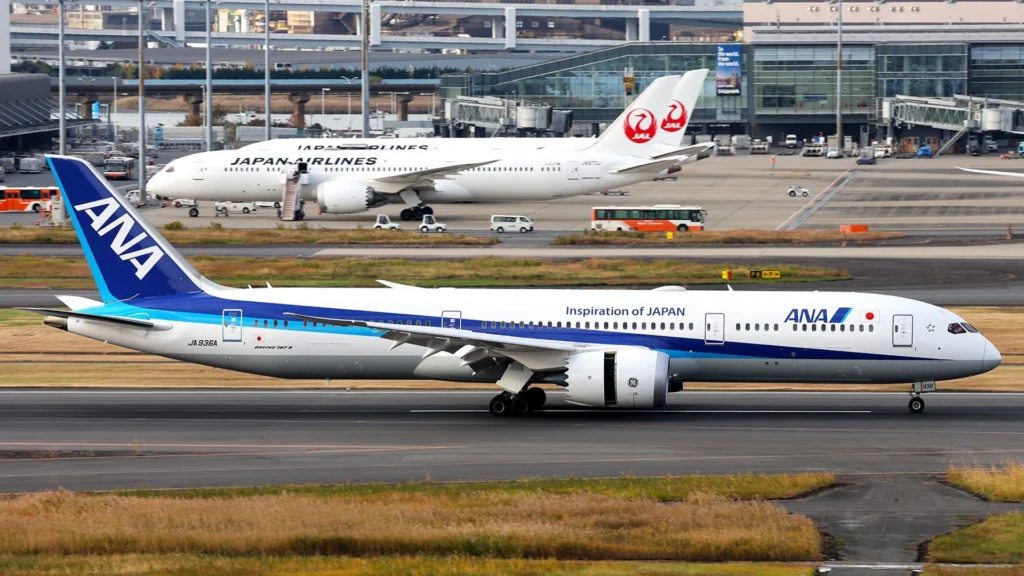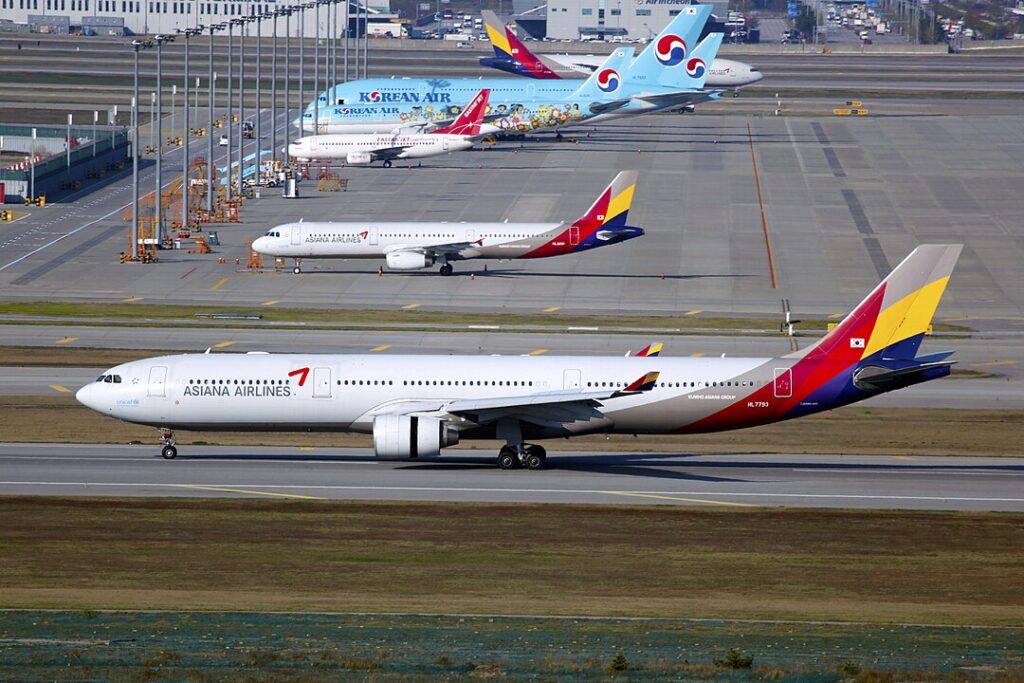SEOUL- According to Cirium data from December 2024, South Korean airlines account for 92% of flight capacity between South Korea and Japan.
This domination extends to the 1.3 million scheduled seats linking these adjacent countries, which represent their respective main aviation markets.

South Korean Airlines Japan Dominate
Japanese carriers account for only 7% of seats, with Ethiopian Airlines (ET) operating the remaining 1% via its fifth-freedom flight between Incheon (ICN) and Tokyo Narita (NRT). The market has 16 airlines, including ten from South Korea.
Korean Air (KE), Asiana Airlines (OZ), and Jeju Air (7C) lead in total seat capacity, pushing Japanese airlines Peach Aviation (MM), All Nippon Airways (ANA), and Japan Airlines (JL) down the rankings.
The imminent merger of Korean Air and Asiana Airlines will dramatically alter the market. The united firm will control 32% of the total seat capacity between the two countries, with more than 830,000 seats.
When subsidiaries Jin Air, AIR BUSAN, and Air Seoul are included, the Korean Air group will account for 60% of all seats.
South Korean Airlines has sole control over 46 of the 50 routes that connect the two countries. Competition exists exclusively on major urban routes like as Gimpo-Haneda, Incheon-Haneda, Incheon-Narita, and Incheon-Kansai.
Even on these competitive routes, South Korean airlines maintain dominant dominance, accounting for up to 90% of capacity on the Incheon-Narita and Incheon-Kansai routes.

Asiana Korean Air Merger
The upcoming merger of Korean Air and Asiana Airlines will redefine South Korea’s standing as a top ten global aviation market. This consolidation decreases domestic airlines from ten to seven, concentrating market dominance among fewer companies in the global airline scene.
Cirium’s December 2024 timetables show that South Korean airlines presently dominate 70% of international seats, with foreign carriers accounting for the remaining 30%.
According to aviation researcher Pang Yee Huat, the merger will increase Korean Air and Jin Air’s combined market share to 49% of South Korea’s international seat capacity.
The merger goes beyond Korean Air and Asiana Airlines, encompassing Air Busan and Air Seoul as Jin Air. This restructure intends to strengthen competitive entities in South Korea’s aviation sector.
Foreign airlines have a considerable presence in South Korea’s aviation business, with 75 actively operating routes. VietJet Air, China Eastern Airlines, China Southern Airlines, Vietnam Airlines, and Air China are the top international carriers, accounting for 1-3% of total seat capacity.
South Korea’s aviation authorities are currently seeking to increase international airline involvement in order to sustain market competitiveness.














Leave a Reply